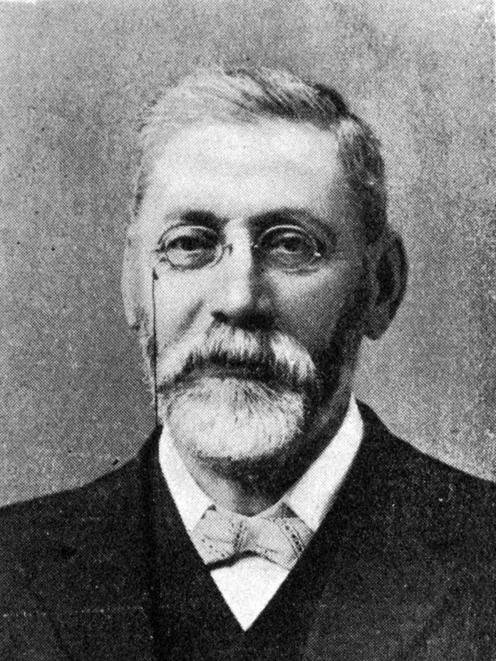
He was not only one of the strongest players, winning the championship of the local club three years in succession (after which he ceased to compete), and the championship of the dominion in 1898, but he shone in every branch of the game.
He was an expert in the problem art, both as solver and composer, and acted as judge in several competitions which were arranged by the Otago Witness when the late Mr John Mouat conducted its chess column.
He was also a painstaking member of the Adjudication Committee. The New Zealand Chess Association (of which he was president for some years) owes its present constitution to Mr Cleland’s efforts, and he also took a leading part in framing the rules governing match-play by telegraph.
The well-known "Cleland Ladder" for grading and encouraging challenge play was the invention of Mr Cleland and his brother Hugh, and it has been adopted in many other branches of sport.

He was on the committee almost without interruption for nearly two score years, and he also served as treasurer for some years. Two years ago the members recognised Mr Cleland’s many valuable services by conferring life membership upon him.
Unassuming and generous as an opponent, Mr Cleland took a special delight in helping young players, and his lectures and demonstrations were full of valuable information.
The sympathy of the chess community of New Zealand is with his widow and two sons in their great loss.
Ongarue derailment described
Te Kuiti, July 7: Interviewed on arrival last night, A. Stewart, the driver of the train, who is regarded as one of the best-known and most experienced drivers, said that on reaching the rise near the scene of the accident he immediately shut off steam.
The train proceeded down the hill under its own weight. The first glimpse of the slip was on rounding the sharp bend. The train ploughed through the obstruction even before the brakes had been applied.
He thought that the train would have got through safely had it not been for a huge boulder, which was carried along for a distance of two or three chains by the cowcatcher before the engine was derailed.
When the engine came to a stop against the bank he called to Campbell, the fireman, but received no answer.
The steam was escaping furiously, and after groping about he got his arm under Campbell, whose coat was jammed between the engine and the bank.
The latter was dragged out with the help of passengers.
Stewart’s injuries consist of a badly scalded arm, bruises to the head and thigh. He was cared for last night by friends, and had a good night. He was reported to be much better this morning.
His injuries are not regarded as serious, though he is ordered absolute quiet.
Gollan second in sculls final
London, July 7: In the final of the Diamond Sculls Morris beat Gollan. Time 8min 23sec. — A and NZ Cable
The King’s English lesson
The Rev Bush-King, the Anglican minister at Mosgiel, visited the local school on Thursday to allow the school children to hear his gramophone record of the King’s message to the children of the Empire. His thoughtfulness was much appreciated by the teachers, and the enjoyment of the scholars was indicated by a round of hearty applause at the conclusion of the brief and bright Empire lesson. — ODT, 9.7.1923
Compiled by Peter Dowden












